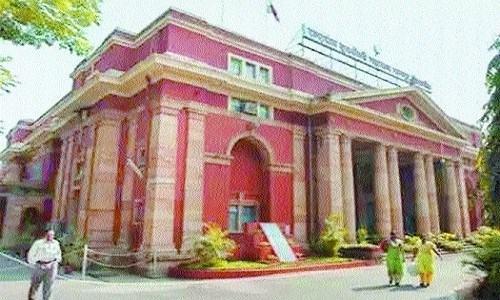When Nagpur University dared British Raj...
15 Aug 2022 08:59:30

By Vikas Vaidya
INDIA is celebrating 75 years of her Independence. A look at history makes one realise that education sector in Nagpur also had made a lot of contribution to the freedom struggle. The erstwhile Nagpur University -- now, Rashtrasant Tukadoji Maharaj Nagpur University (RTMNU) -- also had dared the British Raj and extended support to freedom fighters.
The University stood like a rock with the freedom fighters. Established on August 4, 1923, Nagpur University participated in India’s Independence Movement from the day of its inception. The University contributed to the national movement. University’s Law College remained closed for a couple of months during Non-Cooperation Movement in 1930-32. That time, the University had to face fierce action from the British, but it remained undeterred.
Hyderabad Sansthan, though under the Nizam, was controlled from England. Some 150 students of Osmania University of Hyderabad participated actively in Vande Mataram movement and ruffled the British rulers. To please the British Government, Osmania University took strong action against these students by expelling them. According to University sources, Swatantryaveer Vinayak Damodar Savarkar was one of those students.
Savarkar was a firebrand leader. The British always felt that Savarkar was among the leaders who instigated people against the British Raj. These 150 students, who wanted to study, knocked the doors of Nagpur University. Nagpur University immediately gave them admission. It was a bold step by the University.
Some students had participated in ‘Simon Go Back’ movement due to which they experienced disturbance in their studies and problems in appearing for examination. University put all the rules aside and conducted a special examination for them. The University also organised a special convocation for them.
Students in some other educational institutions from the city did not lag. The hostel of Agriculture College had become a centre of activities for revolutionary youngsters. When the then Principal of Morris College took some action favouring the British, students protested it and pelted stones at the head of the institution. Hislop College students boycotted national games of countries other than India.
Defying the British rulers, Nagpur University conferred Honorary D.Litt. upon Swatantryaveer Vinayak Damodar Savarkar in 1943. Besides, the University kept inviting eminent national leaders, freedom fighters respectfully and fearlessly to deliver speeches at its convocation ceremonies. In 1936, it invited noted poetess ‘Nightingale of India’ Dr Sarojini Naidu, the first Indian woman to become President of Indian National Congress, to deliver convocation address. It invited C Rajgopalachari, last Governor General of India; Sardar Vallabhbhai Patel, ‘Iron Man of India’ and first Home Minister of India, in 1944 and 1946 respectively. The British always disliked this but the University did not stop from contributing directly or indirectly to India’s Independence Movement.
As India celebrates 75th anniversary of India’s Independence, it’s time to remember the University’s contribution to the nation’s freedom struggle.
